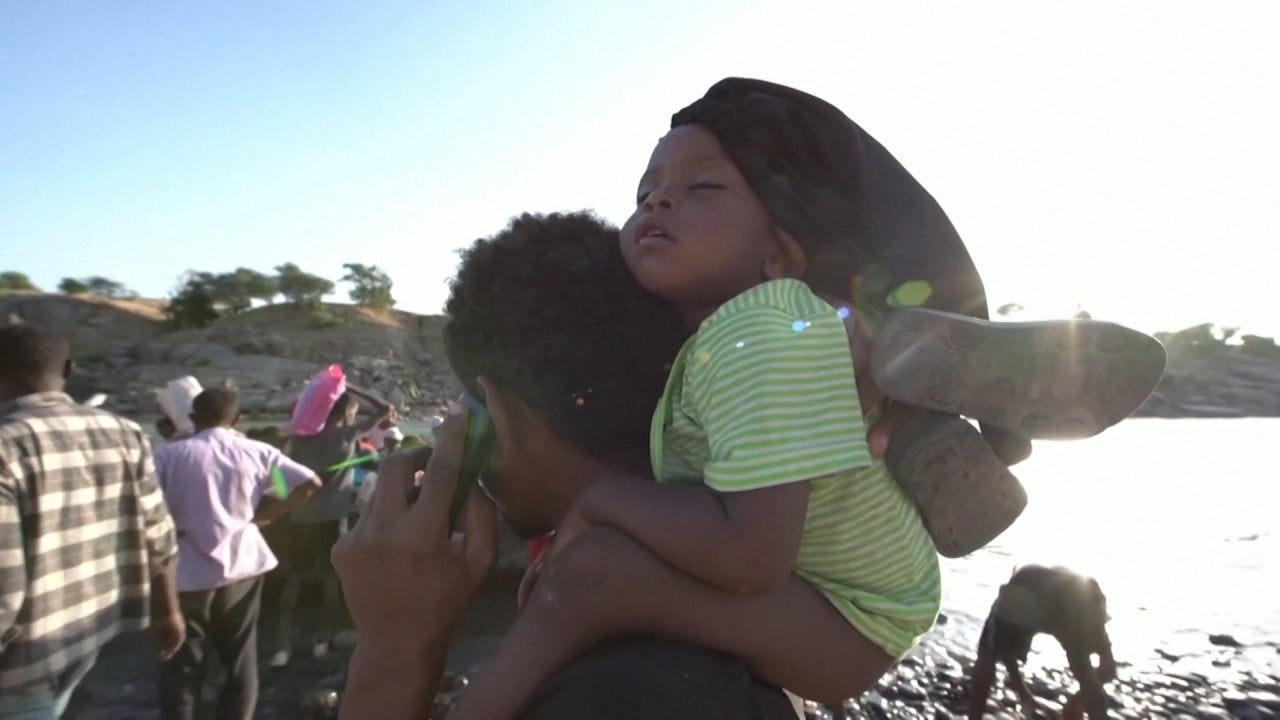
China expands African reach as Eritrea, Guinea-Bissau join belt and road ahead of key regional forum
- President Xi Jinping to deliver keynote speech via video link at Forum on China-Africa Cooperation ministerial meeting starting on November 29
- Eritrea deal cements China’s foothold in Horn of Africa and Red Sea, while Guinea-Bissau access will boost its maritime interests along West African coast
With Guinea-Bissau joining, Beijing would be able to expand its maritime interests along the West African coastline, observers said.
On Thursday, the Chinese ambassador to Eritrea, Cai Ge, and Eritrean Foreign Minister Osman Saleh signed a belt and road memorandum of understanding on behalf of their governments.
A day earlier, Guinea-Bissau also joined the initiative, a move that “will not only promote exchanges in various fields but also mark a new chapter in relations between the two countries”, according to Wu Peng, director general of the Chinese foreign ministry’s African affairs department.
Under the belt and road strategy, China has funded the construction of highways, railways and power plants across Africa.
China still committed to Africa despite Covid-19 disruption, minister says
In the Horn of Africa, it funded and built a railway line running from Ethiopian capital Addis Ababa to the Port of Djibouti on the Red Sea. It set its first overseas military base in Djibouti and also funded mega ports and port terminals in the country.
China has also funded several other projects in Ethiopia, Kenya and Sudan but the worsening security situation in the Horn of Africa, especially in Ethiopia, has worried Beijing.
As for Eritrea, the recent imposition of US sanctions over its role in the year-long civil war in neighbouring northern Ethiopia, had made it useful, if not necessary for the country to reach out to other willing partners, Calabrese said.
Yun Sun, director of the China programme at the Stimson Centre in Washington, said Eritrea sat at a critical location connecting central and eastern Africa and the Red Sea.
“Together with Djibouti, it blocks Ethiopia in from access to the [Red Sea] coast. It has had internal political instability but has improved in recent years, especially in comparison with Ethiopia,” Sun said.
Guinea-Bissau on the West African coast and neighbouring Guinea had also experienced internal turmoil recently, Sun noted.
She said, in general, China pushed for the belt and road to cover and connect more countries in Africa. “Given the upcoming FOCAC meeting … it should not be surprising that China has tried to rope more countries into its orbit,” she said.
The Eighth Ministerial Conference of the FOCAC starts on Monday in Dakar, the capital of Senegal, a West African neighbour of Guinea-Bissau.
Xi will attend the opening ceremony of the two-day forum via video link and deliver a keynote speech while Foreign Minister Wang Yi and Minister of Commerce Wang Wentao will attend in person.
Wang Yi, who is also a state councillor, will pay an official visit to Senegal ahead of the meeting.
African nations push China for better trade deals before Senegal summit
China’s foreign ministry said the forum was “another time that President Xi Jinping and African leaders will jointly chart the course for China-Africa relations, following the Johannesburg Summit of FOCAC in 2015, the Beijing Summit in 2018 and the Extraordinary China-Africa Summit on Solidarity against COVID-19 in 2020”.
“It will be China’s major diplomatic operation facing fellow developing countries this year and a grand gathering of the big, friendly family of China and Africa after the outbreak of Covid-19,” ministry spokesman Zhao Lijian said on Friday.
The conference comes at a time when Chinese lenders have become more cautious and are demanding bankable feasibility studies amid debt distress in Africa.
Observers say although Beijing might not be as generous as in past forums when it committed billions of dollars to roads, hydropower dams, hospitals, railways and ports, several deals are still expected to be sealed.
However, Sun pointed out that “China will selectively pick projects that will serve China’s goal without wasteful lending or commercially questionable deals”.
“[The belt and road] is not a faucet that is either turned on or off. Instead, it is a constant flow, but the volume could be adjusted at different times.”

With Eritrea and Guinea-Bissau on board, the number of African countries that have signed belt and road memorandums of understanding with China rises to 48.
That now leaves Burkina Faso, eSwatini, Mauritius, Sao Tome and Principe, and Malawi as the only African nations that have not joined the belt and road plan.
Eswatini (formerly Swaziland) has not signed since it recognises Taiwan, which Beijing considers breakaway territory awaiting reunification.



